The Ficus Alii is the perfect indoor plant. It can grow tall, its roots are strong, and it does not need much watering or much maintenance.
This plant also has the name Amstel King or the Banana Leaf Tree. It originates from Malaysia and India. This plant is popular because of its ability to clean the air from toxins.
Ficus Alii Care & Growing Guide
1. Light Requirement
The banana leaf tree needs to be exposed to bright but indirect light. It can also be grown in medium partial light. But if you grow it in medium light, its growth will stunt, and its leaves will not grow as quickly. If the light source is coming from a single area, rotate the plant so that all of its leaves receive the same amount of sun within the week.
2. Water
When it comes time to water this plant, only water it after the first inch of the soil has dried out. This is if it is in a small container. If it is in a large container that is more than a 12in in diameter, wait until two inches of the soil at the top are dry. Soak the roots and the soil completely so that water drips out from the drainage holes.
Never water it’s so much that it starts sitting in stagnant water. One sign that it is being watered too much is if its leaves turn black and fall off.
3. Climate and temperature
This plant likes to be in a moderate temperature climate. A moderate temperature is from 60 to 85 degrees F. But, if the temperature drops low, the ficus can handle it. This plant can handle temperatures as low as 45 F, but not for a long time. If the weather is going to be around 45 F or lower for a while, it is best to bring it indoors or store in a greenhouse.
Since this plant originates in Thailand and Malaysia, it is a good idea to have some humidity around this plant. You can set a humidifier by it to improve the humidity in the room. Make sure the humidifier cannot wet the soil.
4. Soil
This plant can be planted in basic potting soil. However, most ficuses like to be in soil with a pH of 6.0 to 6.5, so slightly on the acidic side.
If the soil needs to be fertilized, then apply a standard fertilizer monthly during the ficus’ growing season. Do not fertilize the ficus during the wintertime, when it’s growing season is over. Do not use any fertilizer or soil that has a chemical called boron in it
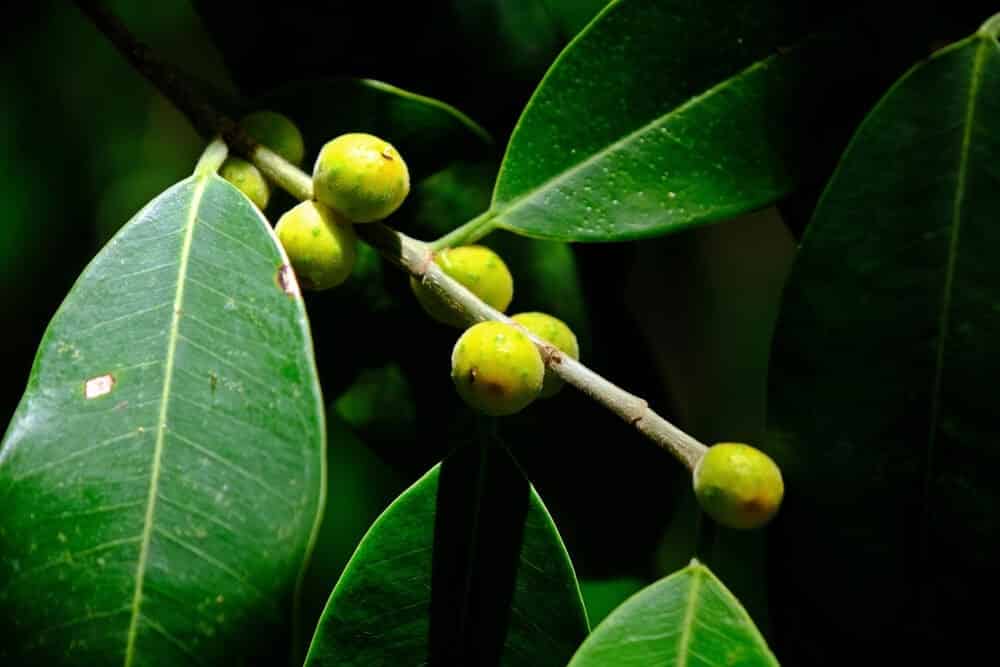
5. Repotting
The roots of the ficus Ali should be a little crowded in its container but not too crowded. If the roots are coming out of the drainage holes, then it is time to repot it. Do not repot it inside your home because it will be messy. Take It Outside.
Remove the ficus from its container and check on the health of the roots. If the roots have begun to ball in a circle, slowly wind them. Then remove as much as much old soil as you can. Cut off any old or dying roots the new container for your Ficus pot should be a few inches larger than it’s current pot.
When you’re done checking the soil out between the roots, place the plant to its new pot that is partly filled with soil and gently fill the rest the pot with soil taking care to not jostle the roots too much.
6. Speed of Growth
The Ficus Ali has a moderate rate of growth when growing conditions are ideal. Also, its roots grow slowly, so you won’t have to repot it too often.
7. Height and Spread
With care and maintenance, they can grow to be more than 6 ft tall. Sometimes it can grow to 10 ft. The width of the plant can grow up to 2 and 1/2 ft.
8. Trimming
The time to trim the banana leaf tree is during the winter because that is when is growing season is over.
Is the Madagascar Palm plant poisonous?
Yes, the ficus is poisonous to both humans and animals. If a person or animal were to ingest the leaves or stems, they would experience stomach pains, vomiting, and breathing difficulties. If the sap were to get on skin or fur, it would cause skin irritation and also rashes. Because of these dangers, it is best to keep this plant away from small children and animals.
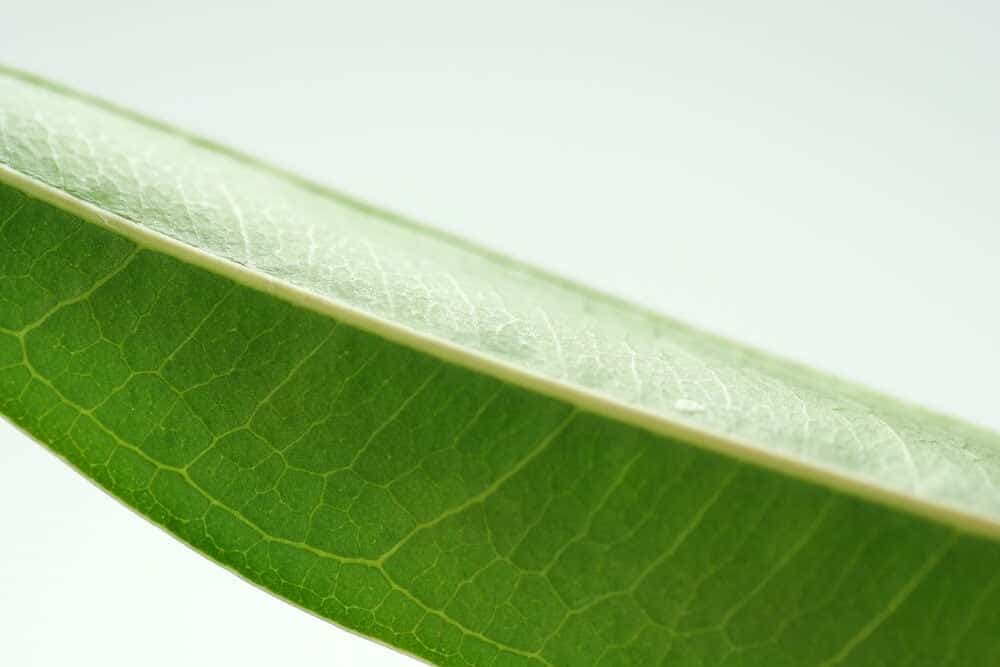
Can Ficus Alli Grow in Water?
No, the ficus cannot grow in water. Most of its problems can be linked to too much water around its roots.
Also read: Strawflower Care & Growing Guide
Does the Ficus alii have flowers, and how do I get them to bloom?
Yes, the banana leaf tree plant produces small whitish or yellowish flowers. Unlike other flowers, when you see the flowers of this tree begin to bloom, you must pluck them off the plant immediately. When you see the berries appear, pluck them immediately too.
Ficus alii Pests and diseases
- Leaf Drop happens to Ficus Alii for a few reasons. One reason is that there is a big change in the environment. It often drops its leaves during the changing of the seasons.
- Another reason for leaf drop is that it is over-watered. Whether it is under-watered or over watered, make sure to only let the soil get a little dry before you re-water it again. The soil should also drain well.
- Gray mold, also known as blight, occurs when a fungus land on a plant that has damp soil. The spores of this fungus can hibernate and wait until spring to travel and attack plants. To know if the ficus has blight, there will be gray webbing on its leaves and branches. To fight it off, you must cut off all infected parts of the plants and apply a fungicide to the ficus every few days until it no longer appears.
More like this:
Conclusion
- This plant is from Thailand and Malaysia
- It is also known as the Banana leaf tree
- It likes to be in humid weather
- Many of its diseases are based around incorrect watering.
- Its roots like to be crowded.
- It does best in soil that is 6.0 to 6.5 ph.
- It is poisonous to people and animals.
- Only water this plant when the first one or two inches of soil are dry.
Victoria is the owner and main author of hobby plants. She loves spending her free time in her garden planting and taking care of her plants. Victoria hopes you enjoy the content here!

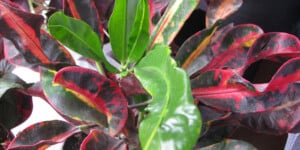

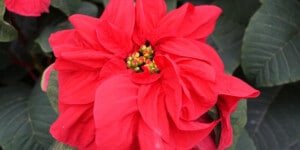
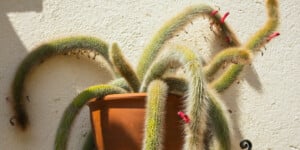
![Mother Of Thousands Plant [Complete Plant Care Guide] Mother Of Thousands Plant [Complete Plant Care Guide]](http://54.201.156.32/wp-content/uploads/2022/07/mother-of-thousands-plant-300x158.jpg)
![Majesty Palm Plant Care: [Complete Beginner's Guide] Majesty Palm Plant Care: [Complete Beginner's Guide]](http://54.201.156.32/wp-content/uploads/2022/08/majesty-palm-care-300x158.jpg)
![Exotic Angel Plant Care: [Complete Beginner's Guide] Exotic Angel Plant Care: [Complete Beginner's Guide]](http://54.201.156.32/wp-content/uploads/2022/08/exotic-angel-plant-care-300x158.jpg)
![Snow White Waffle Plant: [Complete Care Guide] Snow White Waffle Plant: [Complete Care Guide]](http://54.201.156.32/wp-content/uploads/2022/08/snow-white-waffle-plant-300x158.jpg)
![Waffle Plant Care: [Complete Beginner's Guide] Waffle Plant Care: [Complete Beginner's Guide]](http://54.201.156.32/wp-content/uploads/2022/08/waffle-plant-300x158.jpg)
![Bird Of Paradise Plant Care: [Complete Beginner's Guide] Bird Of Paradise Plant Care: [Complete Beginner's Guide]](http://54.201.156.32/wp-content/uploads/2022/08/bird-of-paradise-plant-300x158.jpg)
![Purple Passion Plant Care: [Complete Beginner's Guide] Purple Passion Plant Care: [Complete Beginner's Guide]](http://54.201.156.32/wp-content/uploads/2022/08/purple-passion-plant-care-300x158.jpg)